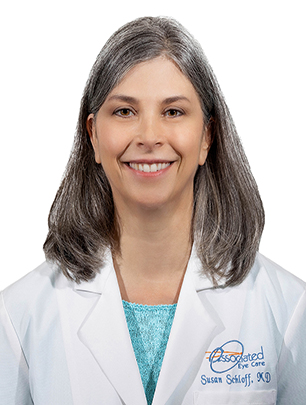Common Misconceptions:
- I never understood that my eyes could be fixed.
- I didn’t know it was that common.
- I was told that strabismus surgery doesn’t work for adults.
- I thought it was cosmetic and that insurance wouldn’t cover it.
These are some of the most common statements adult patients make when initially meeting with a strabismus doctor. Strabismus is a condition where the eyes do not align. Other common terms are wandering eye, lazy eye or crossed eye. Eye misalignment is treated by doctors who are specially trained in the diagnosis and treatment of both pediatric and adult strabismus, which is why adult patients are referred and examined by a pediatric eye doctor.
Adult strabismus is common with a sharp increase in likelihood after age 60 and peaking at age 80. With a lifetime risk of nearly 4%, it is more common than childhood strabismus. While most patients and doctors are aware that childhood eye muscle imbalance can be treated with glasses, patching or surgery, misinformation exists about treatment options for patients who are beyond school age. For example, some patients have been told that surgery does not work for adults. Others are alarmed when someone mentions double vision as a possibility. Many believe that insurance will not cover the cost.
In fact: Over 80% of patients obtain good alignment with one surgery. Surgery for strabismus is considered reconstructive, not cosmetic. It is generally covered by insurance as it may restore the ability to use both eyes together and can improve the peripheral field in patients who are crossing. There are several studies showing increased ability to gain employment and improved social interactions, leading to higher quality of life.2
Treatment: Treatment for adult strabismus is designed to restore normal alignment of the two eyes. Several interventions may be available depending on the patient’s medical findings. For acute medical causes such as trauma or diabetes, prism glasses may temporarily eliminate diplopia during the healing process, allowing patients to return to regular activities including driving and work. For persistent smaller amounts of strabismus, prism glasses may be a permanent solution. Certain types of eye exercises may improve ability to align eyes, and
can often be performed at home. When the degree of misalignment is larger, surgery may be offered, often freeing patients from dependence on heavier prism glasses. Patients with an eye that turns inward may gain up to 25% of their peripheral vision when the crossed eye is straightened.
Strabismus surgery is a day procedure performed under general anesthesia, often in less than 90 minutes. Patients go home the same day and recover rapidly at home over a few days. No bandages or patches are needed. Sutures dissolve spontaneously and most patients return to full activity within a week.
What should you do if you have eye misalignment or double vision?
We are pleased to offer strabismus treatment at Associated Eye Care. An adult strabismus evaluation is needed to assess the type of treatment that is best for you, which may include adjustment of glasses prescription, addition of prism, exercises or surgery. If surgery is recommended, it is a safe procedure that can be life-altering. Restoration of some binocularity, improved visual field and positive psychosocial benefits may be seen. Insurance will generally cover this as a medical-reconstructive procedure.
A conversation between you and one of our strabismus doctors can quickly dispel common misconceptions and lead to life-altering benefits of treatment. A strabismus evaluation can be scheduled by calling 651-275-3000 or filling out our Request an Appointment form.





